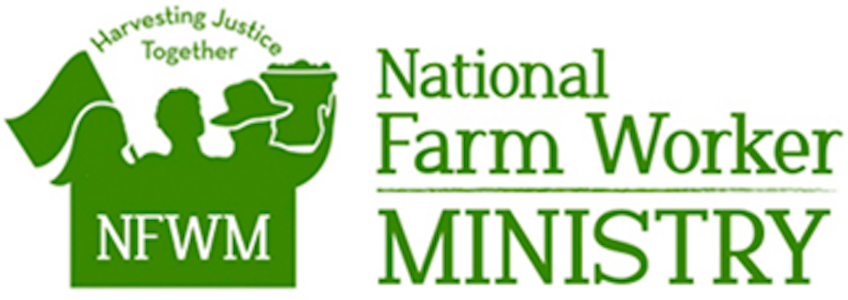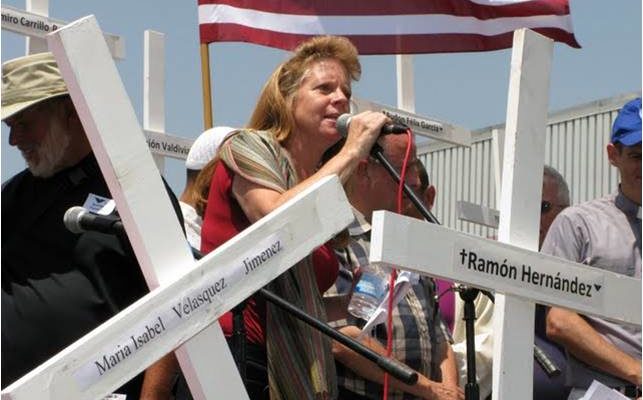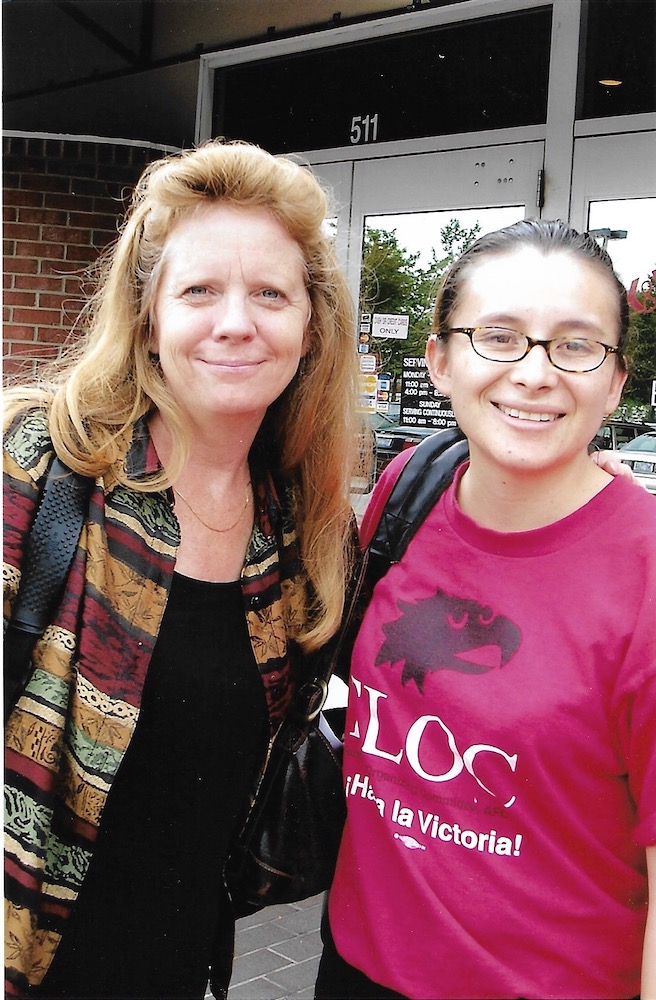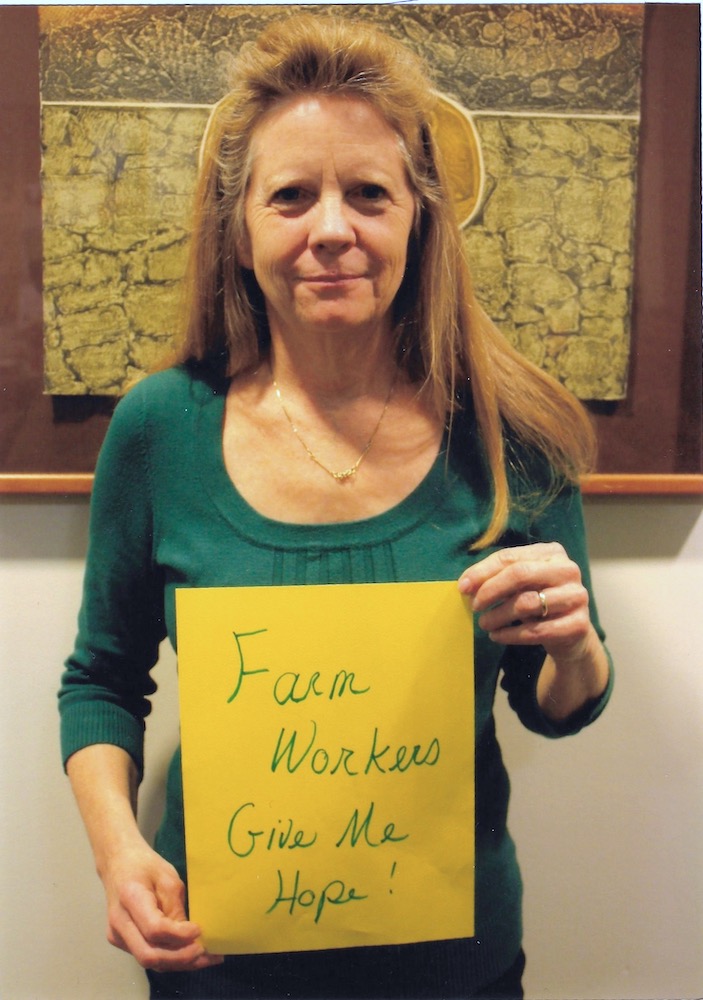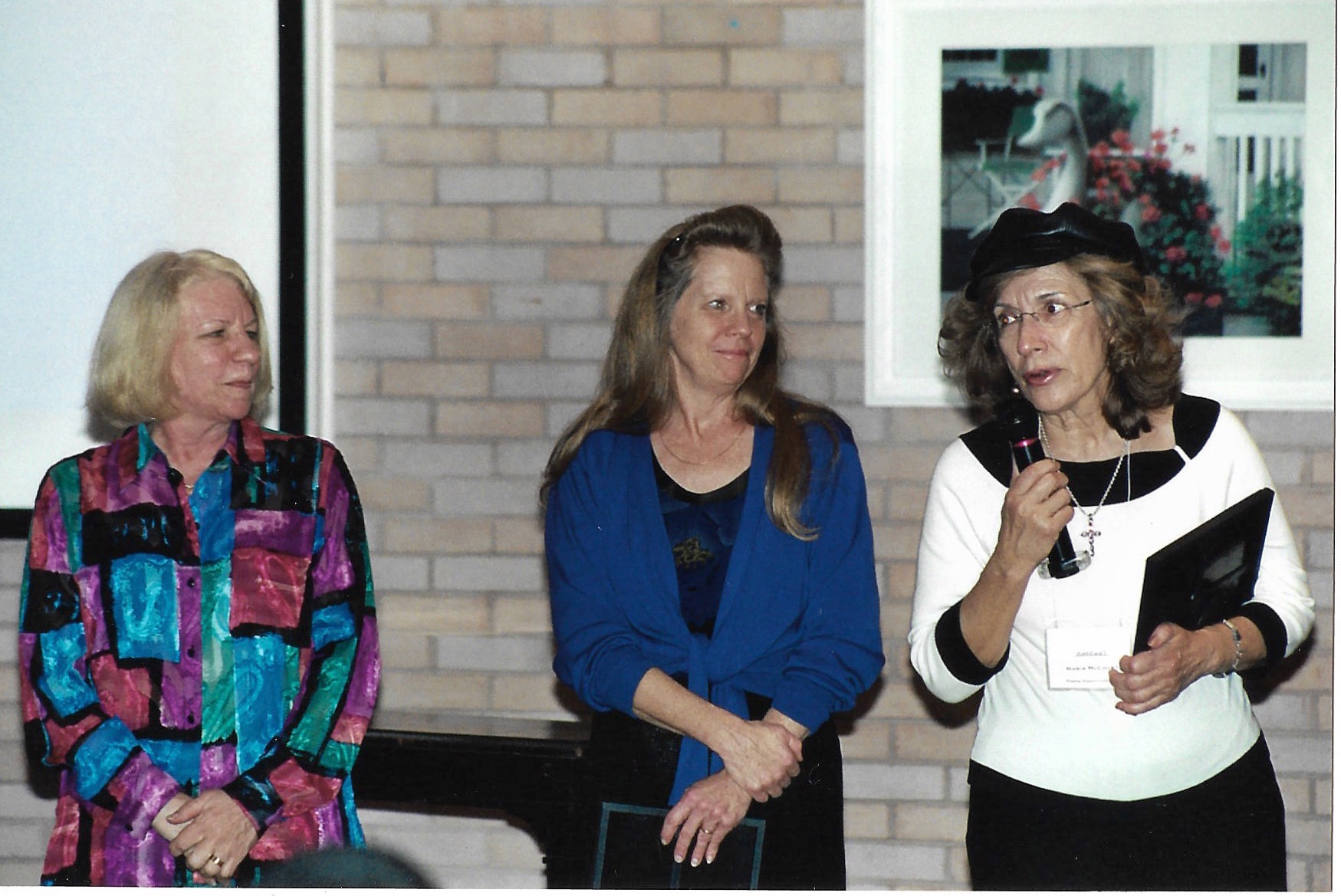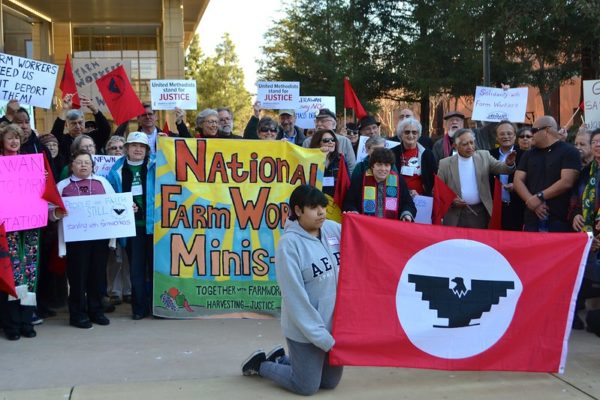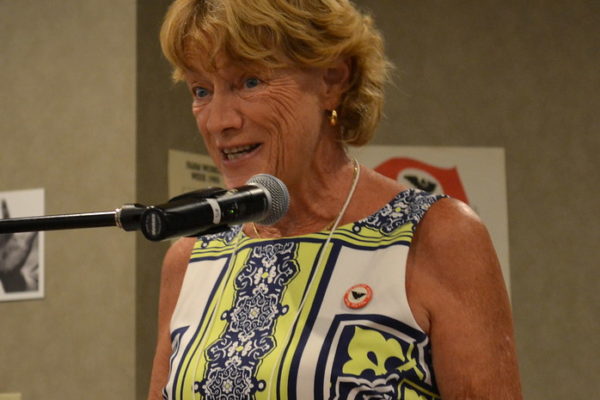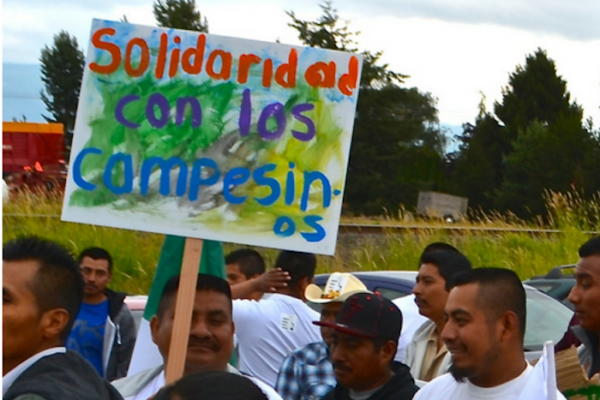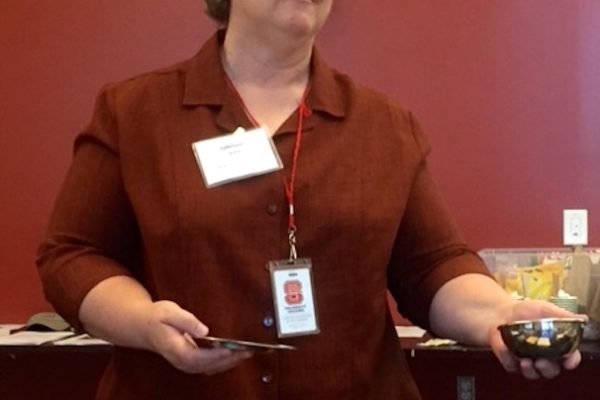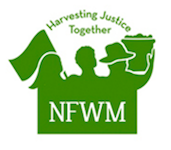“That was at a vigil in California when a young pregnant woman died from heat stress. She asked for assistance and no one gave it to her. We did a march to raise awareness about her. That was an important moment,” said Virginia Nesmith, former executive director of the National Farm Worker Ministry, referring to this iconic photo of her at the rally surrounded by white crosses.
Virginia began working with NFWM in 1976 in Florida, she says. “It was the Florida Christian Migrant Ministry then, which became part of NFWM. I started in Lakeland, FL then went to Miami before I came back to St. Louis [then the NFWM headquarters].”
Virginia became the NFWM director in 1998 and served in this position for 15 years. She oversaw a monumental time in the organization’s history, growing farm worker partnerships and creating a nimble organization that could respond to and effectively support the changing strategies of the movement.
“For 15 years, Virginia has been a relentless leader of NFWM, steering its staff, board and supporters through a whirlwind of victories, challenges and change in the pursuit of justice for and empowerment of farm workers,” wrote Felix Garza, former President of NFWM.
From joining Baldemar Valesquez, President of the Farm Labor Organizing Committee, at a protest of Reynolds Tobacco in London demanding better working conditions for tobacco workers to sleeping in a tent in front of Congressman Kevin McCarthy’s office in California during a rally advocating for legislation to better protect farm workers, Virginia’s name appeared in at least one story from almost every person interviewed for the “50 for 50” project. Her passion and commitment to the movement are evident, but so too is her drive to simply get things done.
“It’s important to remember the care with which later executives worked to equalize the support for the various farm worker movements around the country, getting closer to the Coalition of Immokalee Workers, for example. Equalizing up the support for the various movements was important work to be done. That’s a big part of Virginia’s accomplishment,” said Gene Boutilier, a founding NFWM board member.
Intending to build a strong link to the future of the faith community’s support for the movement, part of Virginia’s work was to formalize the Youth and Young Adult Network. “She was so supportive, I felt so lucky to work with her. Those are some of the best memories I have,” recalled Lariza Garzon, former director of the YAYAs. “She allowed people to be creative. She was open minded about different projects or ideas. If she could help make it happen she would. She was very supportive of youth and understood the contribution of youth and young adults to the movement.”
Virginia sums up her inspiration: “farm workers captured my heart over 35 years ago and fortunately, never let it go. I feel incredibly blessed to have been able to work with all of you who embody a ¡Sí se Puede! attitude and with farm workers who have taught me so much about faith and hope.
